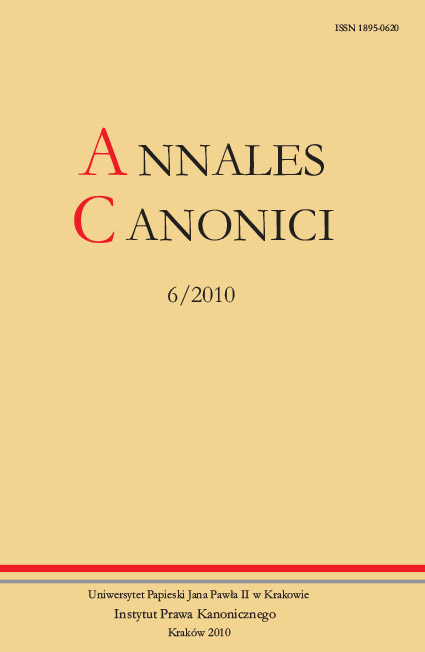Tłumaczenie kościelnych tekstów prawnych – aspekt praktyczny
DOI:
https://doi.org/10.15633/ac.0613Abstrakt
“Translatability” is a quality of certain texts. It is essential that they be translated. The aim of the article is to present some practical issues of the process of translation to help a translator to make good use of the feature of the text of law in question. The paper consists of four parts. The first one deals with the lexical aspect of a text of law. The next one enumerates and briefly describes minor problems that may occur during translation such as: format of date, abbreviations and text editing. In the third point of the article the rules that may be of help in selecting the best version of translation are presented. The first rule comes from the normative nature of law and the second one from the rules that govern process of interpretation. The last essential part discuses the necessity of evaluation of the outcome of the process of translation which should be done by the users of law. Translation is a very complex process especially when one considers that most of texts of canon law are written in Latin and the fact that the target languages are numerous and so different. Hopefully some practical aspects of translation presented in the article can be of help in fulfilling such a demanding task.
Pobrania
Opublikowane
Numer
Dział
Licencja
Prawa autorskie (c) 2010 Piotr Kroczek

Utwór dostępny jest na licencji Creative Commons Uznanie autorstwa 4.0 Międzynarodowe.
Autorzy publikujący w czasopiśmie udzielają jego wydawcy zgody o następującej treści:
- Autor zachowuje autorskie prawa majątkowe do utworu, a jednocześnie udziela wydawcy czasopisma zgody na jego pierwszą publikację w wersji drukowanej i wersji online na licencji Creative Commons Uznanie autorstwa 4.0 Międzynarodowe oraz zgody na wykonywanie opracowań, w tym przekładów.
- Autor ma możliwość udzielania zgody niewyłącznej na opublikowanie utworu w wersji, która ukazała się w czasopiśmie (np. zamieszczenia go w repozytorium instytucjonalnym lub opublikowania w książce), wraz z informacją o jego pierwszej publikacji w czasopiśmie.
- Autor może umieścić swój utwór online (np. w repozytorium instytucjonalnym lub na swojej stronie internetowej) jeszcze przed zgłoszeniem utworu do czasopisma.

